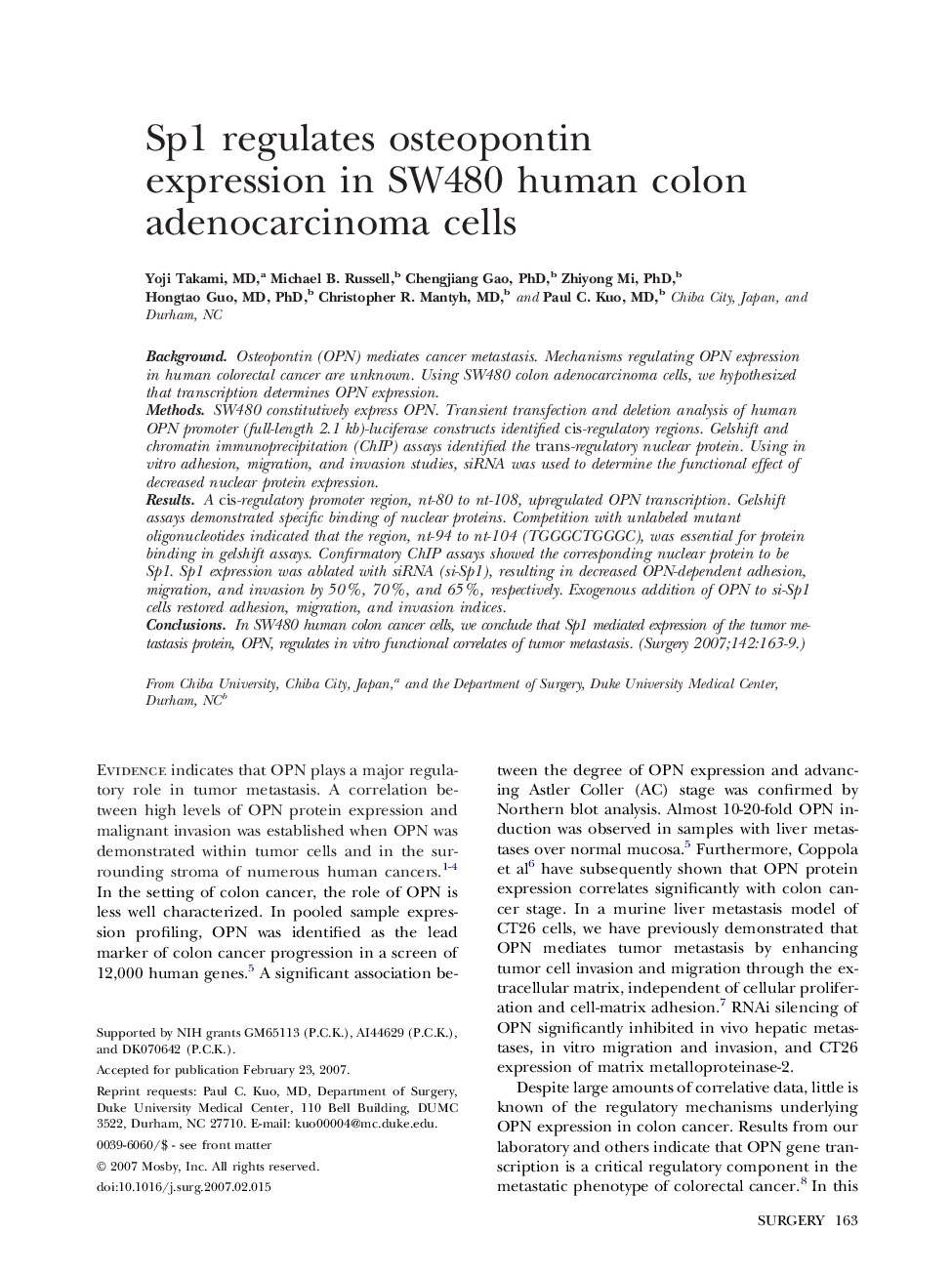| Article ID | Journal | Published Year | Pages | File Type |
|---|---|---|---|---|
| 4310326 | Surgery | 2007 | 7 Pages |
BackgroundOsteopontin (OPN) mediates cancer metastasis. Mechanisms regulating OPN expression in human colorectal cancer are unknown. Using SW480 colon adenocarcinoma cells, we hypothesized that transcription determines OPN expression.MethodsSW480 constitutively express OPN. Transient transfection and deletion analysis of human OPN promoter (full-length 2.1 kb)-luciferase constructs identified cis-regulatory regions. Gelshift and chromatin immunoprecipitation (ChIP) assays identified the trans-regulatory nuclear protein. Using in vitro adhesion, migration, and invasion studies, siRNA was used to determine the functional effect of decreased nuclear protein expression.ResultsA cis-regulatory promoter region, nt-80 to nt-108, upregulated OPN transcription. Gelshift assays demonstrated specific binding of nuclear proteins. Competition with unlabeled mutant oligonucleotides indicated that the region, nt-94 to nt-104 (TGGGCTGGGC), was essential for protein binding in gelshift assays. Confirmatory ChIP assays showed the corresponding nuclear protein to be Sp1. Sp1 expression was ablated with siRNA (si-Sp1), resulting in decreased OPN-dependent adhesion, migration, and invasion by 50%, 70%, and 65%, respectively. Exogenous addition of OPN to si-Sp1 cells restored adhesion, migration, and invasion indices.ConclusionsIn SW480 human colon cancer cells, we conclude that Sp1 mediated expression of the tumor metastasis protein, OPN, regulates in vitro functional correlates of tumor metastasis.
